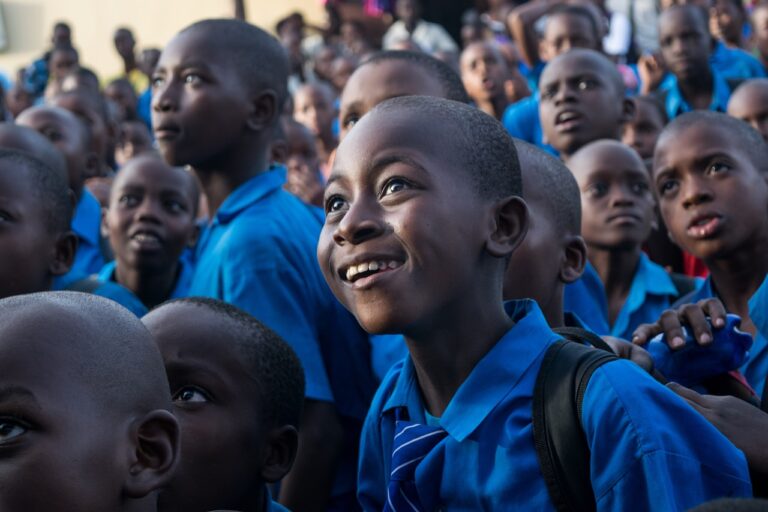
On 18 and 19 October, the Africa Centre, in collaboration with the Deputy Minister of Social Development, Ganief Hendricks, will host the launch of the National Boys’ Parliament. The event will bring together stakeholders from BetterMen4Tomorrow, the South African National Aids Council (SANAC), Sports Stepping Stones and other organisations dedicated to supporting boys and men. The theme for the launch is “Enough talk: Time for action – boys championing change”.
Men’s and boys’ health is central to the Africa Centre’s inclusive health management strategy. According to the director, Dr Munya Saruchera, the National Boys’ Parliament initiative provides a platform to address several key issues in promoting and supporting physical and mental health in young boys: the importance of healing from historical trauma and induction into toxic cultural masculinity norms and practices through emotional literacy, access to positive mentorship and the need for inclusive language and role modelling.
On the first day of the launch event, stakeholders – including boys from all nine provinces – will present their reports on programmatic issues. The second day will feature a formal session of the Boys’ Parliament.
Engaging boys is critical to an effective gender-issue response
At the heart of providing a formal platform to boys is the matter of gender-based violence and femicide. The response to GBVF in South Africa is failing at every level – from unfunded grassroots entities to ineffective campaigns to detrimental law enforcement strategies. Crucially, young boys are being neglected in the response – both as victims (as they are often silenced) and as development intervention recipients. If they are not taught and mentored, harmful practices such as blaming victims and facilitating abuser impunity are recycled into the next generation.
The problem starts with prevention strategies – girls are told to protect themselves, yet boys are rarely taught to respect and protect girls and life. Positive socialisation for boys, girls and others – teaching dignity, respect and equality – is vital to effective prevention.
There’s especially a deep concern regarding a lack of proper mentorship before and after boys’ initiation into manhood. This gap often leads them down risky paths, including alcohol abuse and risky sexual behaviour. Boys who grow up without fathers are particularly affected.
Giving boys a voice
There has been progress. Since 2018, a collaborative effort by the SANAC Men’s Sector, the office of the deputy president and the national Department of Social Development has supported boys’ personal awareness, emotional literacy and positive masculinity. Boys’ assemblies were established nationwide, providing a safe space to share experiences and discuss critical issues. The National Boys’ Parliament will build on these initiatives.
From the launch onward, every local, district and provincial Men’s Parliament sitting will include boys on the first day, with a joint sitting if the session is a day-long event. The goal is to establish Boys’/Men’s Parliaments in 52 districts, supported by mentors across all nine provinces. By bringing boys into the structure, the aim is to create a platform for them to actively engage in programmes and campaigns. Organisations focused on initiatives for boys will also play a significant role.
In addition to integrated boys’ and men’s assemblies, the objectives of the National Boys’ Parliament include the following:
- Strengthen initiatives aimed at boys and young men under the BetterMen4Tomorrow banner, which aims to address men’s health challenges.
- Enforce existing laws to ensure that boys are adequately protected, for example legally recognising instances of sodomy against a boy child as a crime.
- Prioritise boys’ mental health by incorporating relevant programmes.
A better future for everyone
Gender equality is about creating a balanced and fair society for everyone, regardless of gender. It requires a profound shift in perceptions, knowledge, attitudes and behaviours among men as well as women. Making sure that boys’ voices are not only heard but also valued by giving them a dedicated platform is therefore vital to creating a better future for everyone.
